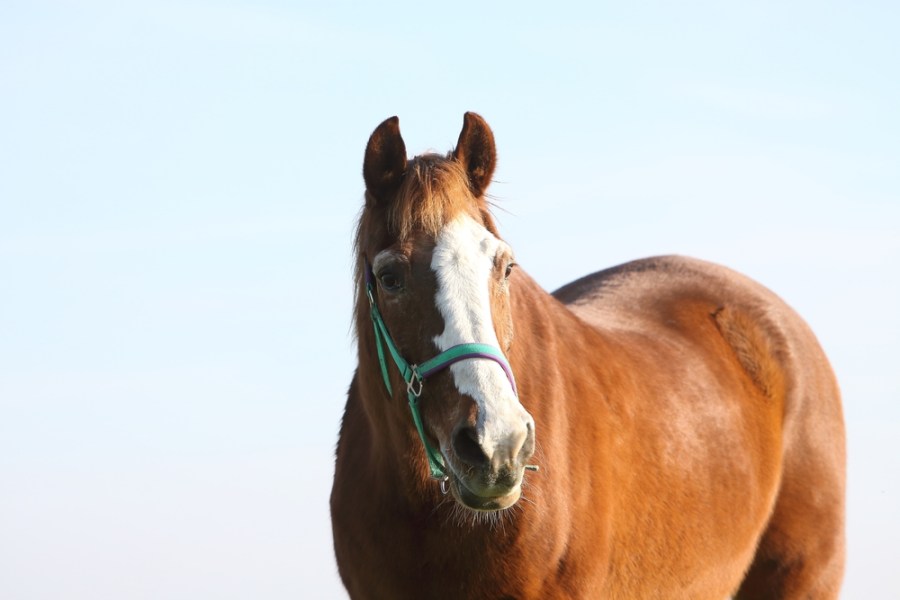Advertisement feature
No two senior horses or ponies are the same, but they all deserve the very best of care.
On this page we summarise the stories of three very special senior horses’ management, including expert tips from the team at Redwings Horse Sanctuary.
No major signs of ageing at 30
Padula Party Pants (aka Pants) is a 30-year-old Welsh section A pony who is owned by Leila Loveday.
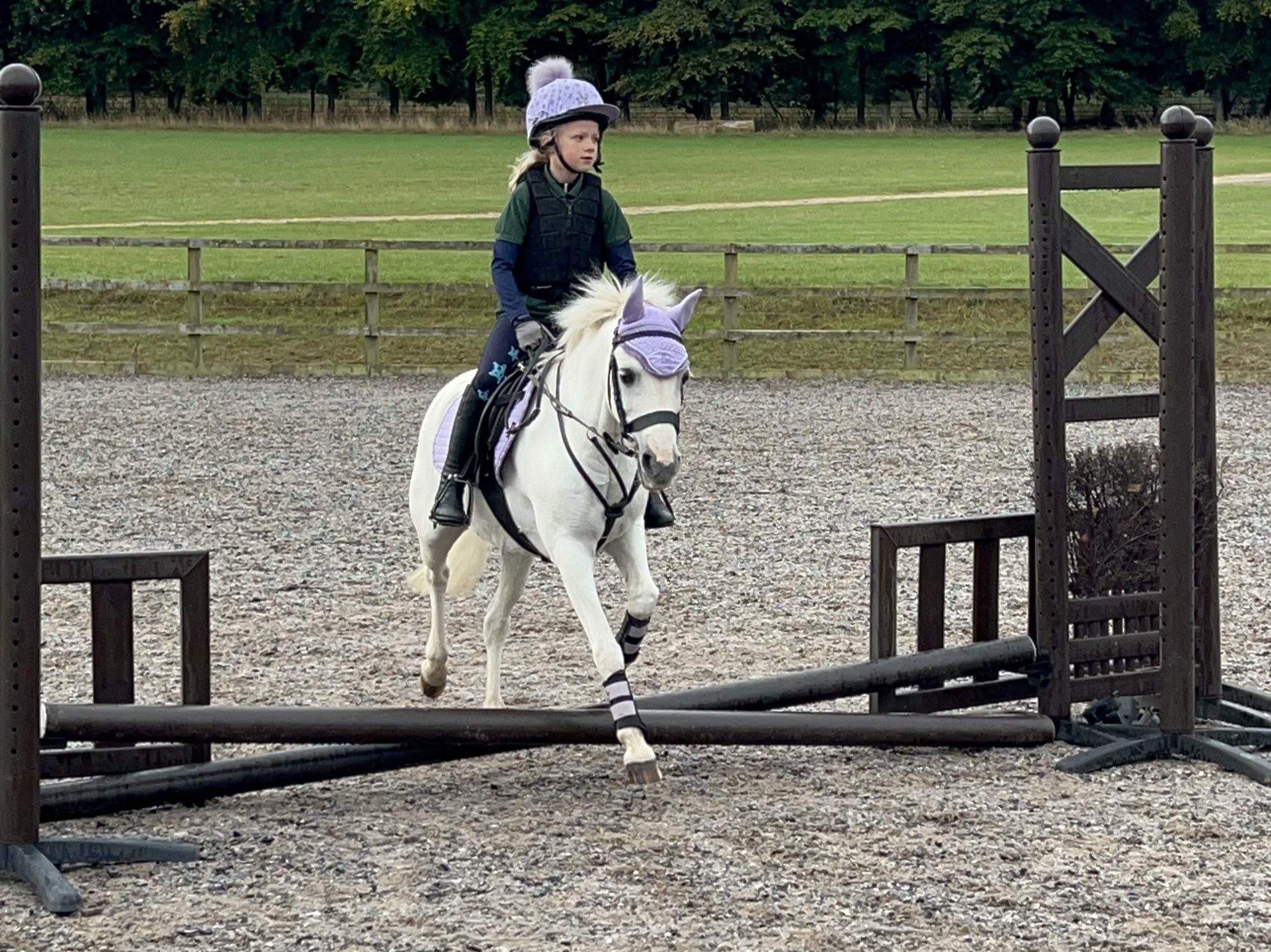
Leila purchased Pants for her four-year-old daughter Eliza. Four years later, Pants still isn’t ready to slow down.
“They hack off the lead rein now and participate in Pony Club activities and shows regularly,” says Leila, who is an equine vet and provides Pants with five-star health care.
This includes monitoring the pony’s mild Cushing’s diligently, with regular blood tests.
“Pants shows no major signs of ageing. She’s on half a Prascend daily and I do regular dental checks. She still trots everywhere — she just loves life,” adds Leila.
Pants isn’t laminitic, but she is managed carefully.
The mare has daily access to grazing and is exercised five days a week. If required, Leila rides and leads Pants from her own horse in order to get her out.
Mindful of the fact that she has Cushing’s and is Welsh bred, Pants is fed a low starch and sugar diet.
Still going strong at age 19
Ted, 25, is a Welsh/Warmblood and owned by Katrina Lee.
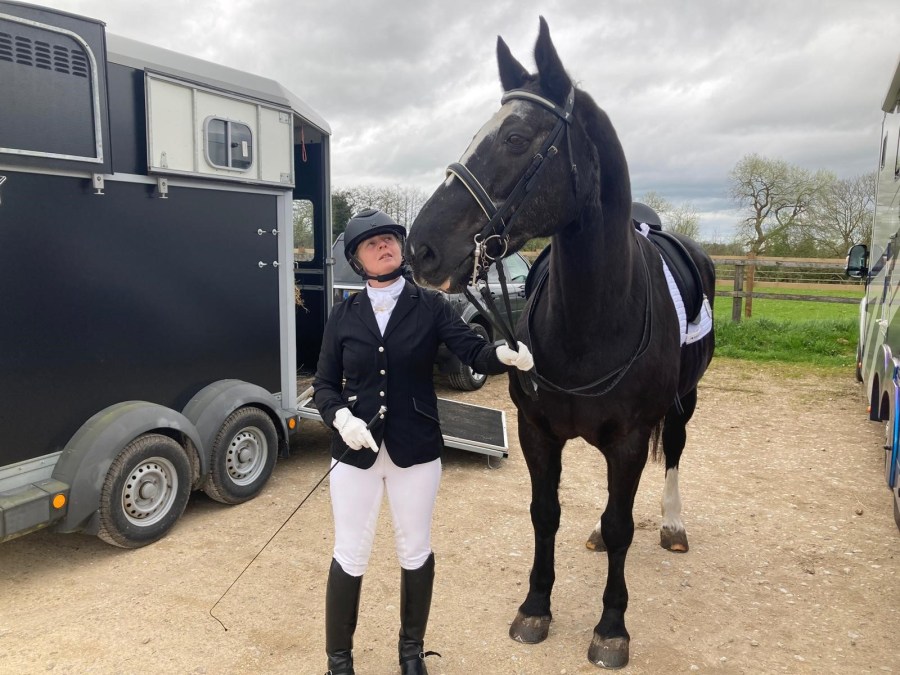
After initially loaning Ted, Katrina bought him as she “couldn’t let him go” and 19 years later they’re still best friends.
She says Ted has turned his hoof to everything and always wants to please.
“I enjoy training, hacking and dressage, so we’re a perfect combination. He taught my boys to ride, but at 17hh he wasn’t ideal for lead rein,” says Katrina.
The pair work at medium level dressage and “rather than float, he majestically thuds down the centre line”.
Regardless, Katrina adds that she enjoys their adventures: “Judges don’t know his age — recently one said he shows potential for the future!”
Until recently, Ted has always been a good doer.
“Even with a jaw injury, Ted wasn’t put off and he kept eating,” says Katrina.
“Since last winter, though, he has needed more feed to maintain his weight and topline.
Ted is now fed:
Together, these feeds provide energy for work as well as a balanced diet, and the additional calories and quality protein the horse needs in order to maintain condition and topline.
The 29-year-old cob who can’t chew hay
Caesar is a 29-year-old cob cross who was born at Redwings Horse Sanctuary to a rescue mare found in very poor condition.
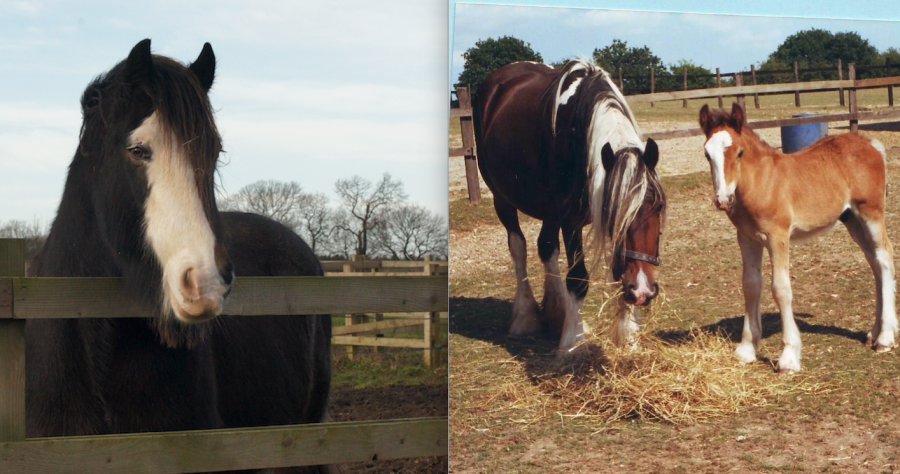
Above left: Caesar now
Nearly 30 years later, Caesar is still in Redwings’ care and much-loved by the charity’s team.
His feed is adjusted according to his weight and body condition score, which are monitored regularly by the team at the farm,” says Nicola Jarvis, Head Vet at Redwings.
“He is now classified as ‘No Long Fibre’, so 100% of his diet is provided by hay replacers.
“He also tested positive for PPID (Cushing’s) and so needs to be managed carefully as part of a special ‘golden oldie’ group.
“This includes dividing his daily ration of hay replacer between multiple small meals to mimic trickle feeding and provide entertainment.”
Top tips for feeding senior equines
Collectively, the Redwings sites are home to over 1,300 rescued equines, with over 50% being seniors. As a result, the team are experts in caring for golden oldies.
Here some top tips for managing your own senior horse or pony, from Nicola Jarvis.
1 Observation is key
Spend time watching your older horse for early signs they might need more support from you and your vet.
2 Wise words on dental check-ups
Dental disease is often well advanced before the horse shows any signs of it to the owner.
This is one of the reasons why regular teeth check-ups are really important, even if all seems well.
Nicola once discovered a large stick wedged firmly across the hard palate of one oldie, yet this stoic pony was not even drooling.
3 Stay on top of vaccinations
Contrary to popular belief, older horses should still have their regular vaccinations for equine flu and tetanus.
Older horses may have lowered immunity and be less able to fight disease and recover.
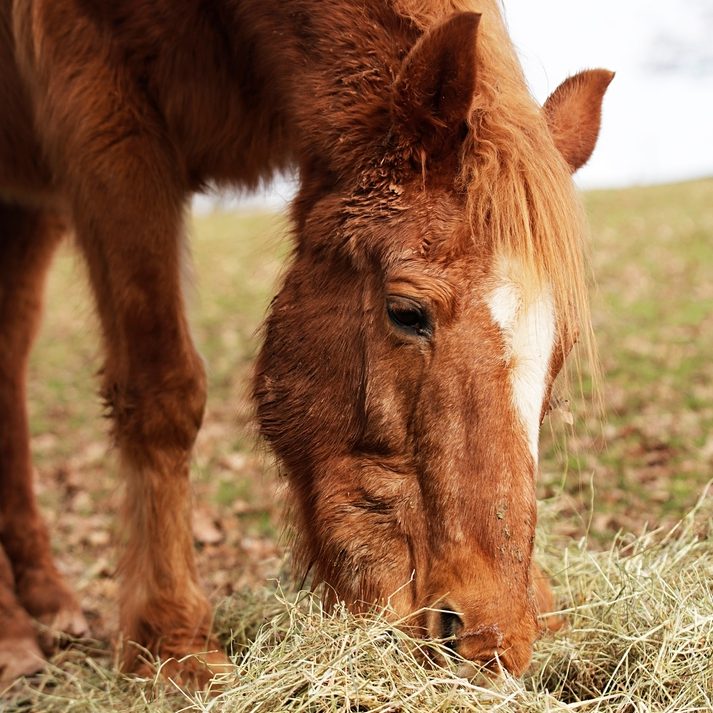
4 Monitor weight and body condition score regularly
It is important to keep an eye on your horse’s weight by body condition scoring and using a weigh tape every week.
Being overweight can add to the pain of arthritis and reduce the body’s immunity to disease.
If your horse is underweight, despite adequate feeding, first check that a worm burden or bad teeth are not the cause.
If the problem continues, consult your vet.
5 Worried about worms?
Older horses and ponies, especially those with Cushing’s, may have higher worm faecal egg counts and may benefit from more frequent monitoring.
Speak to your vet for advice.
6 Hoof care extends beyond feet
If your senior has osteoarthritis, your vet may recommend pain relief and simple changes to their lifestyle to help keep them happy.
Book regular foot trims, because your horse will have to flex their limbs more if the toes are too long.
If you would like any nutritional advice for your senior horse or pony, the SPILLERS nutrition team are on hand. Contact them by phone on 01908 226626 or complete a Care-Line form here and one of the team will be in touch.
Main image (stock) © Shutterstock. Inset images supplied by Spillers unless stated

